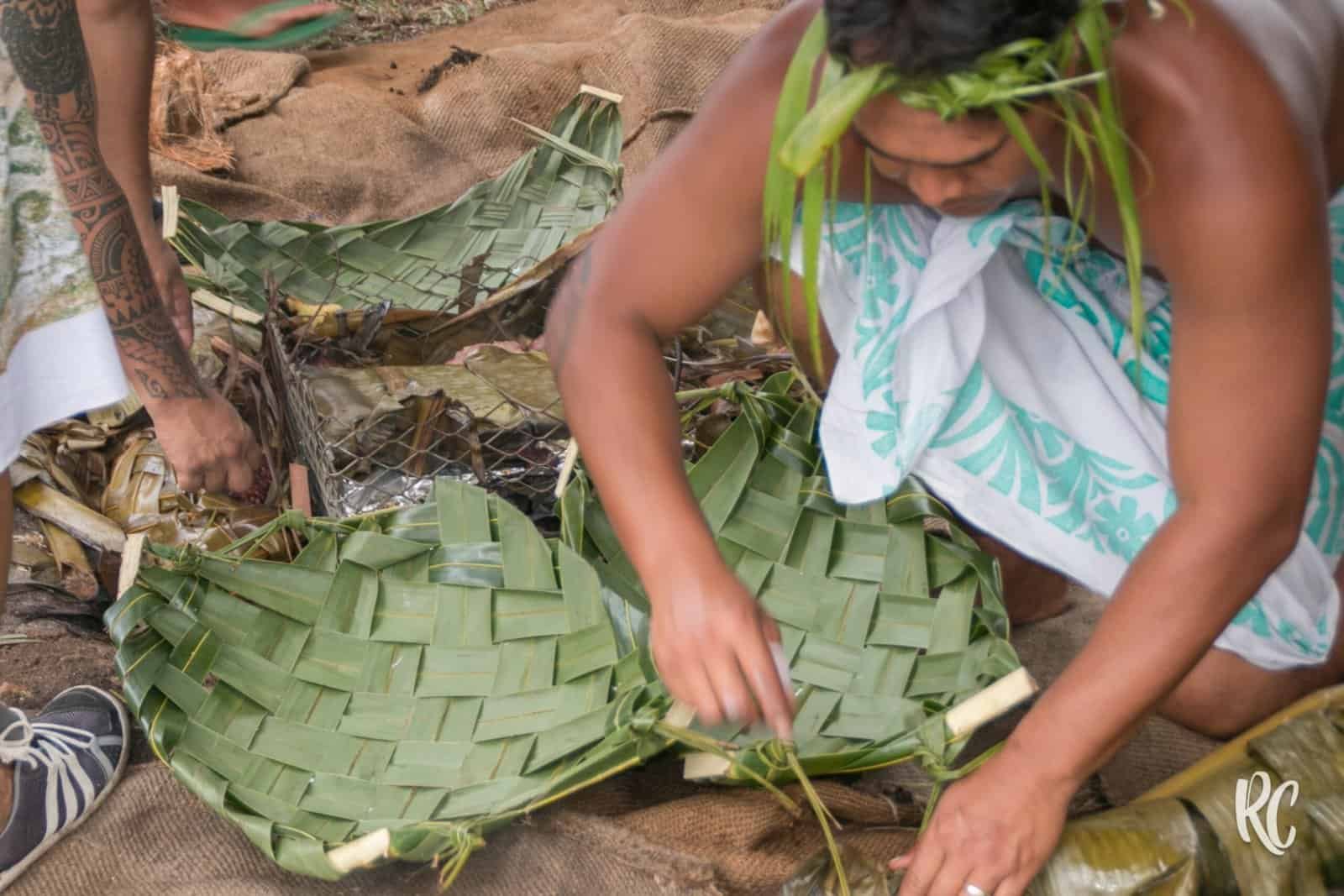Culinary exploration in Polynesia
Follow me to discover ahimā’a, food cooked in the traditional oven, called umu.
A true ancestral cooking method, it transcends simple meal preparation. It’s a harmonious dance between fire and kitchen, a collective preparation.
Tasting a meal cooked in a traditional Polynesian oven is a unique sensory experience, revealing the secrets of meticulous preparation and the perfect symbiosis between fire, prepared food and slow cooking.
The Polynesian oven is much more than just a means of cooking. It’s an ancient art passed down from generation to generation, bringing families and communities together. Used to prepare a variety of foods, the cooking process is a celebration of local tradition and know-how.
Building the umu : a precise ritual
The construction of the Polynesian oven is a precise ritual, carefully executed the day before the tasting. A pit dug into the ground by men becomes the receptacle for volcanic rock, previously heated by wooden logs. These volcanic stones are carefully selected to be placed on top. After a few hours of heating, the stones become incandescent.
Food preparation
Food is carefully prepared while the fire comes to life. A dedicated team, usually the women, gets down to preparing the ingredients early in the morning. Local fish, meats and tropical vegetables are meticulously prepared.

Food placed in the bowels of the umu
On the menu, a variety of delights to tantalize the taste buds of adventurous gourmets. Fresh fish, taro, yams, uru, plantains (fe’i) and meats make up the “savory” menu. They soak up the unique aromas that only the Polynesian oven can offer. For sweet treats, desserts are prepared using local flour and fruit grown on the site. fenua, the polynesian motherland.
The subtle steps in the cooking process
Firing in the Polynesian kiln is a slow, subtle process. Food wrapped in banana leaves (or, in a much more modern way, in pots) is carefully placed on the glowing stones. The whole is then covered with foliage, burlap and finally sand. The steam produced inside the pit, combined with the heat of the stones, infuses the food with exceptional tenderness. Flavors mingle, creating a culinary symphony that embodies the true essence of Polynesia.
So, are you ready for a culinary voyage?
Editor: Ruben CHANG

